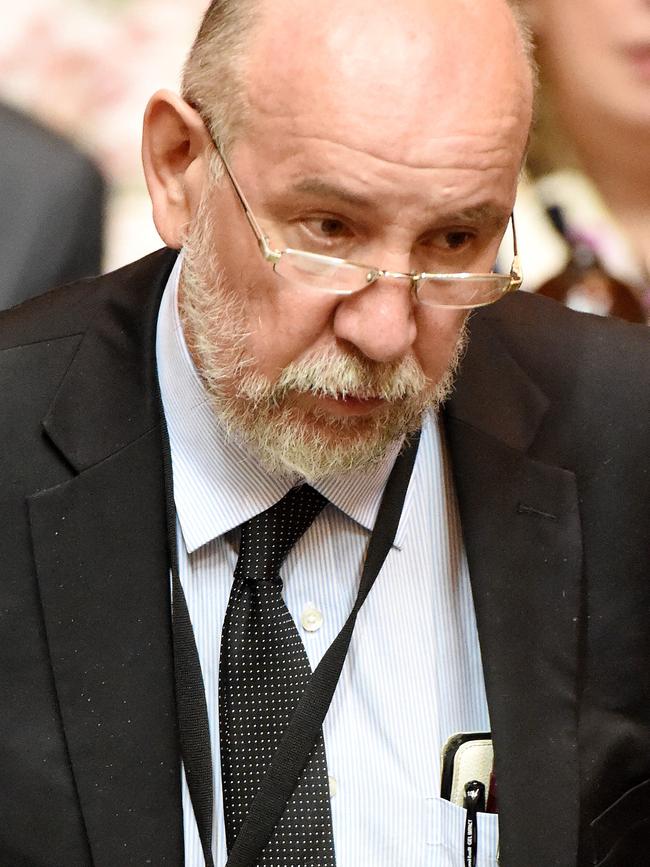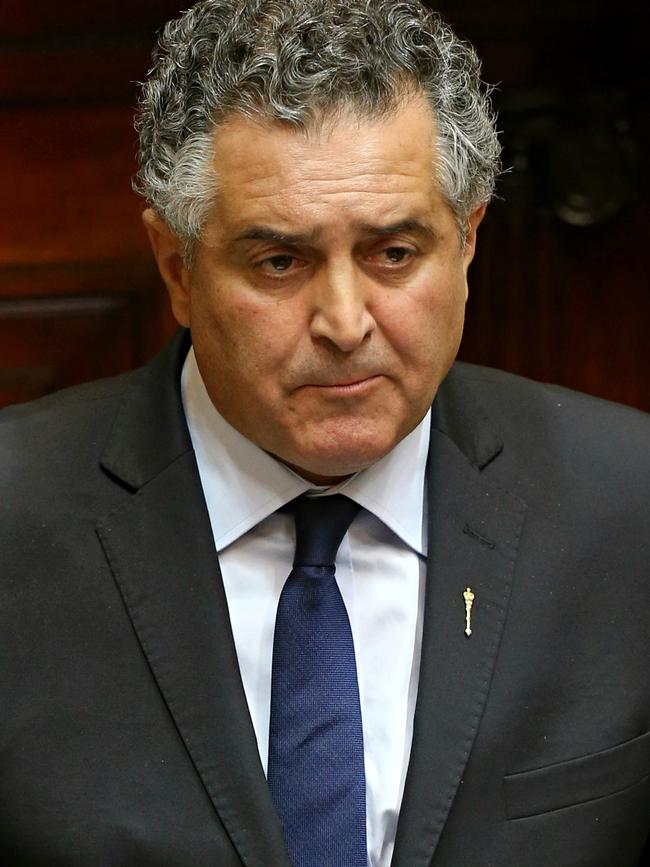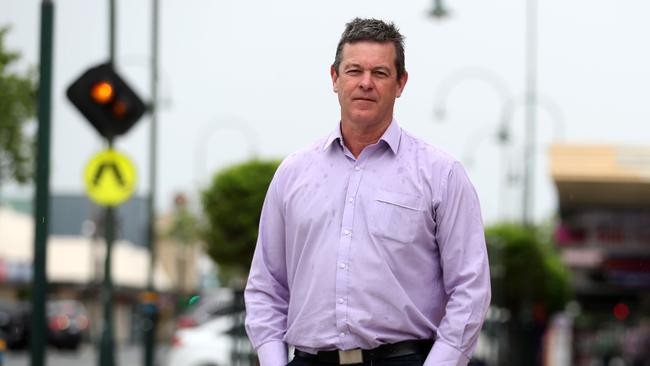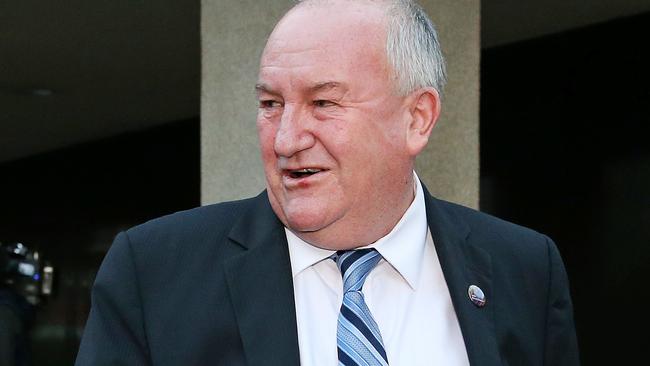Tom Minear: It’s our money, so give us clarity on MP’s expenses
The state government has promised to clean up its act on MPs’ expenses but so far the rhetoric doesn’t match the reality, writes Tom Minear.
Opinion
Don't miss out on the headlines from Opinion. Followed categories will be added to My News.
Labor spent our money at a rapid rate over the past four years — and it wasn’t just on roads, schools and hospitals.
There was Telmo Languiller and Don Nardella, the speaker and deputy speaker who cashed in $130,000 of allowances to live on the coast instead of in their western suburbs electorates.
There was Steve Herbert, the minister who instructed his taxpayer-funded driver to chauffeur his pet dogs.
And of course, there was Labor’s “red shirts” rort under which $388,000 of public money was used to pay political campaigners.
In the end, that wasn’t what mattered to many Victorians when they went to the polls last year, as Premier Daniel Andrews chalked them up as issues only on Spring St, not Main St.
But it doesn’t take much for the public to change its mind on a government. Labor operatives know they can’t afford to risk upsetting voters with another four years of expenses scandals.
So it was to the government’s credit that one of its first acts this year was ensuring the passage of sweeping reforms to the pollie pay and allowances system.
Those changes should have been made two years ago, when Andrews declared the rules were “clearly inadequate” and needed “to be cleaned up”.
Better late than never. The problem now is whether the government’s rhetoric will be matched by reality.


Rules are made to be broken, after all, and politicians have a lengthy track record of finding ways to beat the system.
It’s been three months since the new laws kicked in and there’s little evidence that much has changed.
Consider the rebooted parliamentary register of interests, which is crucial to ensuring MPs are acting for the benefit of their constituents, not their share portfolios and property investments.
Some parliamentarians needed extra time to fill out the required forms — they must have been struggling to remember their sources of income, real estate holdings and association memberships — and were granted extensions.
The new register was eventually published in May when journalists were occupied with the release of the state Budget.
And instead of a transparent database, 1131 pages of handwritten and scanned documents were dumped on the parliament’s website, unable to be easily searched.
On page 478 was independent MP Russell Northe’s disclosure of his personal debts — well, sort of.
The former Nationals member is believed to owe at least $350,000 to colleagues and friends in the Latrobe Valley.
But despite clear rules requiring MPs to describe their personal debts “including the name of the creditor”, all Northe would reveal was that he had “personal loans — private undertaking with individuals”.

When the Herald Sun inquired about his vague disclosure, it emerged that the parliament is allowing MPs to interpret the new laws themselves — a situation not helped by the fact that a promised parliamentary integrity adviser hasn’t been appointed.
It’s easy to understand why Northe is trying to keep his money problems private. But these laws were brought in for a reason.
MPs have a great deal of influence and voters deserve to know that power is not being swayed by private interests.
It’s not merely a hypothetical concern — just ask former Labor senator Sam Dastyari.
The government’s new laws also create a “monitoring, compliance and enforcement system” so all taxpayer-funded allowances claimed by MPs are published online every quarter. This should end the gravy train that has given politicians $10,000 a year — that’s $1.28 million overall — to travel wherever they like without explaining what they spent the money on.
Some will probably try to skirt around making those disclosures too, so it is incumbent on the parliament and a new compliance officer — who has also not been appointed — to ensure the law is enforced.
Both sides of politics have long run a protection racket to prevent the blowtorch being turned on their own misdemeanours, so it is way past time for official independent scrutiny.
Meanwhile, when state MPs woke up last Tuesday, many were surprised to read in the Herald Sun that they will be getting a pay rise from July 1.

MORE: TAXPAYERS RIPPED OFF IN PUBLIC SERVICE CRIME WAVE
SOLAR PANEL INSTALLATION HORROR STORIES REVEALED
HAND-PICKED MFB CHIEF SNUBBED FOR NEW TOP JOB
Backbenchers get an extra $4630 a year while Andrews’s salary will reach $394,000.
Some may say they are out of touch for failing to know about the pay boost. But these increases — linked to average wage inflation — are never announced publicly. This ridiculous lack of transparency should finally be solved in September, when the state’s new remuneration tribunal makes its first determination on pollie pay and allowances.
The tribunal will base its decision on a “work value” test — which could lead to yet another pay rise for MPs, given most generally work hard in a tough job.
Properly paying people for their public service isn’t a bad idea. But it’s our money and we deserve to know how it is being used.
As Labor continues to enjoy the spoils of its thumping state election victory, more than a hint of arrogance has crept in on the frontbench and among some rookie MPs.
If one of them turns out to be another Don, Telmo or Steve, then the ramifications for Dan might be much more significant this time around.
— Tom Minear is state politics reporter



